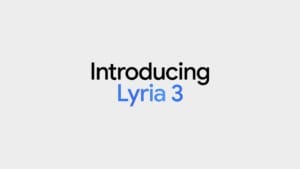ChatGPT introduces group chats for shared conversations
OpenAI introduces group chats in ChatGPT, allowing people to collaborate with others and the AI assistant in shared conversations.

OpenAI has introduced group chats in ChatGPT, offering a new way for people to collaborate with one another and with the AI assistant in the same conversation. The feature is now available to logged-in users on ChatGPT Free, Go, Plus and Pro plans, following an initial pilot.
Table Of Content
A new way to collaborate
Group chats allow several people to participate in a shared conversation alongside ChatGPT. The feature is designed to make it easier for users to plan, make decisions, and work through ideas together. OpenAI said the experience is intended to support both everyday tasks and more complex projects, whether users are planning a dinner with friends or drafting an outline for a school or work assignment.
Early users can start a group chat from any new or existing conversation by tapping the people icon. When someone is added, ChatGPT automatically creates a copy of the original chat so private conversations remain separate. Invitations can be shared with up to twenty participants, and all group chats appear in a dedicated section of the sidebar for easy access.
ChatGPT asks each user to create a short profile, including a name, username and photo, so group members can see who is in the conversation. Once the chat is active, participants can share notes, articles and questions, while ChatGPT helps summarise or organise information.
New behaviour for multi-person conversations
OpenAI has introduced new social behaviours to help ChatGPT operate more naturally in group settings. The assistant monitors the flow of conversation and decides when to respond or stay silent, depending on context. Users can still prompt a reply by mentioning “ChatGPT”. The assistant can also react to messages with emojis and refer to profile photos when creating personalised images within the chat.
Responses in group chats are powered by GPT-5.1 Auto, which selects the most suitable model based on the user’s plan and the prompt. Features such as search, image generation, file upload, dictation and image understanding are included. Rate limits apply only to ChatGPT’s responses and count towards the allowance of the user being responded to.
Group settings give participants control over the experience. Members can change the chat name, add or remove people, mute notifications, or set custom instructions that shape how ChatGPT responds within that specific group.
Privacy considerations and future plans
OpenAI emphasised that group chats are separate from private conversations. Personal memory is neither used nor created within group chats, and the company is exploring more granular controls to give users flexibility over how memory functions in shared environments.
People must accept an invitation before joining a group chat, and all members can see who is participating. Anyone may leave the chat at any time, while the original creator can only be removed by exiting the group themselves. Additional safeguards apply to users under 18, including reduced exposure to sensitive content and parental controls that allow group chats to be disabled entirely.
After receiving positive early feedback, OpenAI is expanding group chats to more users and plans to refine the feature further as usage grows. The company said group chats mark the beginning of ChatGPT becoming a shared space for collaboration, helping people spark ideas, make decisions and work more creatively with others.
















